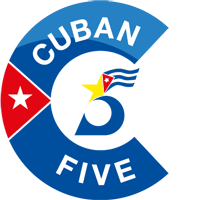|
Sonia Verma
Havana— Globe and Mail Update The following post is part of a new series that brings a fresh perspective to global news from our team of foreign correspondents This week, Cuba’s foreign Minister Bruno Rodriguez said his country wanted to re-establish relations with the United States. However, he insisted President Barack Obama first release five Cubans convicted of espionage in 2001 and currently serving out lengthy sentences in a Miami jail, calling their continued imprisonment “inhumane.” In Cuba, the “Cuban Five” are viewed as national heroes, protecting their country by gathering information about terrorist groups in the United States. In Havana, Sonia Verma spoke to one of their wives, Elizabeth Palmeiro, who had just returned from a prison visit with her husband, Ramón Labañino, who is serving out a 30-year sentence. Q: When is the last time you spoke to your husband? A: I just came from visiting him in Miami prison with our daughters, Laura and Elisabeth. Q: How was he? A: Psychologically he’s optimistic that at any moment he will be released. Physically, he’s getting old in prison. He’s having some trouble but he doesn’t want to talk about this. He was happy to see our daughters so mature. Q: I understand there is going to be a new appeal in his case? A: We know now that some journalists were on the payroll of the government of the United States. Those journalists were writing articles during the time of the trial, before and after the trial, trying to prejudice this jury. The Cuban Five don’t call themselves terrorists; they call themselves democratic freedom fighters. Q: How did you meet each other in the beginning? A: I met Ramón in a bus station. In Cuba it’s difficult to find a person that didn’t meet another this way, because we spend a lot of time in these places waiting for a bus. We spent all our weekends going to the theatre and talking here in the Malecon. We married in nine months. We were all the time together until one day, in 1992, he told me he had to go to Spain. I was pregnant. Then it started, the most difficult part of the story. Q: What did you understand about the nature of his mission? A: I didn’t know he was in Miami. He told me he was in Spain working on a mixed enterprise between Cuba and Spain, as an economist. It was not clear. I thought, maybe he has another woman in Spain. When he came on one of his vacations it was tense. He told me there was no enterprise in Spain; there was another kind of enterprise but in the United States, trying to bring some medicines to Cuba, because of the blockade. That was a very important and risky mission. I believed him. September 1998 I was informed that he was arrested in Miami. I said no, impossible. I never imagined he was infiltrating a terrorist group. He never told me. Q: When you heard about the charges against him – espionage and spying against the United States, what was your reaction then? A: That it wasn’t true. They cannot be accused of espionage because they were infiltrating community groups. Not American installations. They were infiltrating groups that were organized to cause damage to the Cuban population. Even the American government knows that, because there was an exchange of information about the plans of these people there in Miami. I had a lot of sentiments when I found out he was arrested in Miami because I was proud but at the same time I was very sad. He was not only my husband and my hero, but he was also a hero for many persons here in Cuba. Those moments at the beginning of the arrest and the beginning of this process it was very difficult because nobody knew about that. I was alone with the information that Ramón was not in Spain but was in the United States in a prison. Q: During his trial and subsequent appeal, he was sentenced to a lifetime in prison and then it was reduced to thirty years… A: I couldn’t be at the sentencing hearing because I wasn’t given the visa on time to be there. Ramón was the only one of the five that was alone that in the court. The American government delayed my visa until the last moment. I received the visa two hours before the trial finished in Miami. Q: You have spent your entire life with your husband in prison, raising two children on your own. What’s that been like for you? A: The most difficult part. I’m not a single mother. My husband is in prison. We are in love. If somebody told me twenty years ago my life would be like this I couldn’t believe it. But I cannot imagine my life without Ramón, even in prison. But maybe because love can do everything, maybe because I have the support of everyone in Cuba, we found this strength to continue. I cry sometimes I’m depressed. Q: What has the Canadian government done about this case? A: As a government? Nothing, but certain groups of parliamentarians have. In 2007 the Bloc Québécois and some NDP members signed a letter to the American government demanding justice for these people in prison. I met Jack Layton in Ottawa and he showed me his support. In Montreal every two months people rally to demand freedom for the Cuban Five. How can Canada send troops to Afghanistan to fight in the so-called war on terror when these five are kept in jail on Florida soil? (This interview has been edited and condensed.)
0 Comments
Your comment will be posted after it is approved.
Leave a Reply. |
Voices for the FiveArchives
May 2016
|
 RSS Feed
RSS Feed

